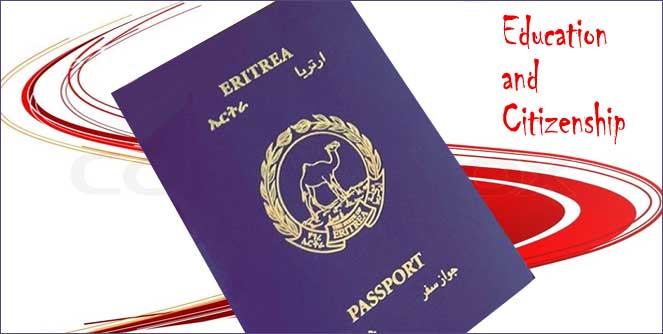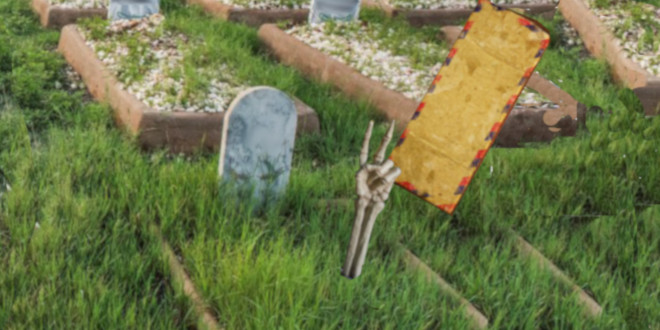Multi-dimensionality in Storytelling

Masterful storytellers are akin to quilt makers, it is just that their woven products are delivered through the spoken words. Each narration engages listeners at different levels. The crux of the matter is to be aware that there exist multi-dimensional levels of storytelling. Such awareness will inevitably free us from that one-dimensional way of viewing/listening to stories. It also helps to keep in mind that humor, satire, and sarcasm are always par for the course with Saleh Gadi Johar’s narrations. In fact, if one were to follow the theme of humor, satire, and sarcasm in each episode that alone will reveal an interesting narrative. In my previous article, HERE I attempted to analyze speeches of PM Abiy Ahmed and that of Eritrean regime’s perspective using textual and contextual analysis. This time, switching gears, I will share my interpretation of the three narratives of human stories that Saleh Gadi Johar (SGJ) presents in Negarit #11. The common theme that emerges from this particular episode not only depicts how politics implicates human condition, but that it can be one that makes or breaks the spirit and the soul of a nation.
A storyteller’s ability to hold his audience riveted rests in that unique ability to understand human pulsations at intellectual, emotional, and visceral levels. It is when these capacities are tapped the listener reaches to that state of equilibrium, that space of equipoise, as it were, transformed by the story so much so that all of his faculty are engaged. This, of course, one cannot expect to happen at every junction for the listener. Some stories do it some don’t; depending on the individual’s mood when listening to the story, the relevance of the story, for a myriad of other reasons. The caveat of some sound aids can also appeal to the audiences’ acoustic sensibilities as well as visual ones that may trigger certain reactions. Each narration follows a narrative strategy where the importance of the subject matter increases both in substance and in its evolutionary schemes.
The Medrekh Story Goes Beyond Amb. Andebrhan
The first narrative starts with the diaspora’s current political activism or predicament as illustrated through Amb. Andebrhan. So, the narrator tells a story of the evolutionary process of a Forum for National Dialogue, better known as Medrekh. Out of the three stories, this is the less consequential one in substance. A good storyteller warms up his listeners with a less sanguine subject matter by bringing a less consequential story. So, from this viewer’s standpoint, the first story deals with the internal dynamism of Medrekh that viewers are not privy to and could only take at a face value.
Using images that one sees and the sounds of a cash register ringing that one hears as the story is narrated impacts viewers differently. Depending on one’s sensibility and mood, this may not comport with some viewers and it is a risk, obviously, that the narrator is willing to take – And that comes with the territory of public storytelling. Another risk, of course, is the person being implicated in the story will find it offensive or those who are affiliated with Medrekh might be offended by it. But, that’s the price public figures have to be willing and able to pay. Thus, the first scrumptious narrative is a lightweight treatment the narrator chose to give because it is inconsequential to the larger message being conveyed in the subsequent two narratives. What viewers gain from the first narrative is the nature of Eritrean politics is such that it demands political organizations to position and reposition themselves to stay relevant. This process can be taxing, especially in the Eritrean political landscape and that one has to be willing to withstand a barrage of political tsunamis, seemingly without notice.
The Second Story Transcends Major General Philipos Woldeyohannes
This story is about Eritrea’s current predicament as illustrated through a Major General who happens to have a name called Philipos Woldeyohannes. Saleh Gadi Johar narrates about the General as one of the people he came to know in the context of the struggle for Eritrea’s independence. A viewer who is unable to go beyond the acquaintances will be one who epitomizes what it means to be stuck in one-dimensional receptors akin to a viewer who can’t go past the person named in the first story. At any rate, this second story is more consequential although it may have a similar narrative arc to the first. In this narration, a viewer will notice an evolutionary process at a close range.
This evolutionary process weighs heavily on the narrator. Thus, he searches for a way to understand that state of human nature. This appears to have burdened the narrator, but he doesn’t see how to disburden himself from it other than wishing to someday interview the man and ask him some questions. The implication here, of course, is how is that an otherwise brave man to a point of becoming Major General ends up becoming a toy and a victim to a one-upmanship political power game by an unscrupulous man at the helm who is destroying Eritrea and its people along the way. The story ends with the narrator’s curiosity or wishes to really have a chance to ask the General, what has come of the country and its people since independence? What would the General’s sense be? Where does the General draw the line between the country and the people?
What can be surmised from this second narrative is this: Human condition teaches us that some people lacking moral clarity and principles resort to the moral compass that shifts with time. But the narrator does not go that far to tell his viewers of this until he personally meets and talks with the man, which may never happen. The story is left unresolved from the standpoint of the master storyteller but viewers can draw their own conclusion.
Eritreanism Equals The Sum Total of Eritrean People, NOT of PFDJ Alone
The 3rd story is the height of the three narrations that a listener begins to sense will be an ominous one, because a pattern has already been established by the first two narrations. Viewers are immediately keen to learn about 1993. Members of Eritrean Liberation Front (ELF) were stationed in Ethiopia in opposition to the Eritrean People’s Liberation Front (EPLF) that brought the independence of Eritrea. The ELF was based in Sudan and Ethiopia to continue its fight for pluralism now that the country was liberated. Thus, ELF was actively opposing the regime in Eritrea in hopes of finding a way to participate in the Eritrean story as it wanted to be part of the nascent nation-state narrative. This story is invoked because of the peace talks that Ethiopia under PM Abiy Ahmed has initiated with the Eritrean regime on the 5th of June 2018. The narrator senses something seriously lacking in the current peace talks as initiated by PM Abiy of Ethiopia. The game of political oppression and exploitation are slippery slopes. Pestilence and erasures of history are part of the political games played on unsuspecting citizens. A justice-seeking individual is hyper-aware and chooses to err on the side of prudence rather than on the side of trusting politicians. This sense of restiveness is the cadence of one born to rebel for the sake of justice. He uses his Eritrean-given agency to speak up and speak out through storytelling. The activist for social and political justice in the narrator kicks in. He knows these games of politics all too well. He recalls in how in 1993 Ethiopia betrayed Eritrean activists.
There was a security agreement between Ethiopia and Eritrea back in the early nineties, the storyteller pronounces. Ethiopia’s administrators of the time put all of these opposition groups in the old airport jail of Addis Ababa. The unjustly imprisoned activists were released on a condition that they would go to some third countries. Soon after the old airport incident, Zakarias Nguse was gunned down in Desie, Wollo, Ethiopia. Gebrebrhan Zere was the next victim who was abducted as he was headed toward Humera, Tigray, Ethiopia. To date, nobody knows his whereabouts. Similarly, many more were made to disappear in Sudan. All this was done after the agreement between Ethiopia and Eritrea of the early 1990s under the same regime that’s in power in Asmara today.
What will become of the Eritrean opposition groups in their thousands who are in Addis Ababa today? Would the 2018 peace agreement being worked out include these oppositions groups in the peace negotiations as it should? Will they be victimized again as the early activists were in the early nineties? These are the obvious questions that the storyteller hopes his viewers not only begin to ask but make sure the safety of every Eritrean is assured just as has been the case of Ethiopian opposition activists. This is where the narrative arc hits the ground running. The narrator’s worry takes a deeply felt human condition that he sees looming to take a dark turn. “I worry”, he says, “what this agreement might unleash, especially, to those who do not subscribe to the Higdef’s [EPFDJ] doctrine”, the narrator states.
From the narration above, what’s unequivocally verbalized is this: The narrator goes full throttle here as he shows the evil nature of Eritrean regime’s modus operandi. The Eritrean regime speaks of peace, on the one hand; and on the other, it wants to show a caring nation that wishes peace of its neighbor but not one of its own. Can a regime that never looks within leave others to live in peace? Ethiopia has been looking within to make peace with its people before looking to its neighbors. How does one expect for peace to reign in our region if each country is not willing to look within its boundaries and make peace with itself and with its people?
Now, Ethiopia is speaking of peace with its neighbor. We all wish for that to occur. But, with the peace specter looming, there is not a single mention of Eritrean civilians’ well-being, safety, and peaceful life as any other. This, Ethiopians should understand: Any nation that does not espouse peace internally can never have peace with its neighbors. You’ve heard it in the speech [of 20 June 2018], all that was heard was the old and tired speech of Weyane this, Weyane that. Not a single uttering of peace from the man at the helm of political power in Eritrea. The man couldn’t bring himself to utter the word peace with our neighbors for the sake of peace. Nothing. His personal animosity with Weyane is being translated to mean enmity with all Ethiopia and Eritrea. The latter is being held hostage in this process.
The episodes are giving viewers that storytelling can, indeed, reign supreme. The endless mythmaking Eritreans have ripe dispositions for are being counterpoised by the weekly stories. Mythmaking abounds in our region; conspiracies serving as fuel to that conspiratorial fire; all of these received with a one-dimensional mindset; that is just a perfect recipe for a lethal outcome; an outcome that we will continue to see if some of the reactions to these episodes are to be used as any guide. The master storyteller is fighting against one forceful optative from giving way to the indicative. For that, an accolade of the highest order is his to be had.



Awate Forum